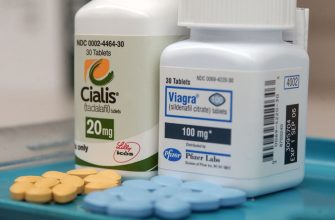Need answers about indomethacin-related lawsuits? Focus on understanding the specific claims. Common allegations center around adverse drug reactions, particularly gastrointestinal issues and cardiovascular problems. Thoroughly examine the details of each case, paying close attention to the plaintiff’s medical history and the specific dosage and duration of indomethacin use.
Successfully navigating these cases requires a deep understanding of pharmacology and medical negligence law. Plaintiffs must demonstrate a direct causal link between indomethacin use and their alleged injuries. Defendants, often pharmaceutical companies, need robust evidence of proper warnings and informed consent procedures. Expert medical testimony will be pivotal in establishing liability.
Remember, success hinges on meticulous evidence gathering and strategic legal maneuvering. Documenting the prescribing physician’s actions, the patient’s medical records, and the pharmaceutical company’s warnings is paramount. Consider engaging specialists in pharmaceutical litigation and toxicology for informed guidance.
Key Considerations: Thorough review of FDA guidelines and warnings regarding indomethacin is crucial. Analyze the timeline of events carefully. Did the adverse reaction occur within a reasonable timeframe of using the medication? Compare the plaintiff’s experience with similar cases. Establishing a clear chain of causation is the cornerstone of a successful strategy for both plaintiffs and defendants.
- Lawsuits Involving Indomethacin
- Gastrointestinal Issues
- Other Adverse Events
- Successful Strategies
- Common Allegations in Indomethacin Lawsuits
- Cardiovascular Issues
- Liver and Kidney Damage
- Summary of Common Allegations
- Failure to Warn
- Types of Injuries Associated with Indomethacin Litigation
- Determining Eligibility for an Indomethacin Lawsuit
- Key Factors Affecting Eligibility
- Next Steps
- The Process of Filing an Indomethacin Lawsuit
- Finding Legal Representation
- Evidence Gathering and Discovery
- Potential Outcomes and Settlements in Indomethacin Cases
Lawsuits Involving Indomethacin
Indomethacin, a nonsteroidal anti-inflammatory drug (NSAID), has been the subject of several lawsuits. Claims often center on serious side effects, particularly gastrointestinal complications like bleeding and ulcers. Plaintiffs allege manufacturers failed to adequately warn consumers about these risks.
Gastrointestinal Issues
Many lawsuits focus on perforated ulcers and gastrointestinal bleeding. These complications can be life-threatening and require immediate medical attention. Evidence presented in these cases often involves medical records demonstrating the severity of the injury and a causal link between indomethacin use and the adverse event. Expert testimony from gastroenterologists frequently plays a crucial role.
Other Adverse Events
Beyond gastrointestinal problems, litigation has included claims related to cardiovascular issues such as heart attacks and strokes, although this is less frequent than gastrointestinal claims. These cases require demonstrating a correlation between indomethacin use and the cardiovascular event, often necessitating extensive medical records review and expert witness testimony from cardiologists.
Successful Strategies
Successfully pursuing a lawsuit involving indomethacin typically requires meticulous documentation of the patient’s medical history, including medication use and the onset of side effects. Strong evidence of a causal link between the drug and the injury, supported by expert medical testimony, is key. Demonstrating a failure by the manufacturer to adequately warn consumers about potential risks is also critical to a successful claim.
Common Allegations in Indomethacin Lawsuits
Many indomethacin lawsuits center around serious side effects. Plaintiffs frequently allege injuries stemming from gastrointestinal issues, such as ulcers, bleeding, or perforation. These problems can manifest as severe abdominal pain, vomiting blood, or bloody stools, requiring urgent medical attention.
Cardiovascular Issues
Another common claim involves cardiovascular complications. Allegations frequently include heart attacks, strokes, or irregular heartbeats potentially linked to indomethacin use. These serious events can lead to long-term disability or even death.
Liver and Kidney Damage
Liver and kidney dysfunction are also commonly cited. Plaintiffs may claim indomethacin caused hepatitis, jaundice, or kidney failure. These conditions often require hospitalization and prolonged treatment.
Summary of Common Allegations
| Allegation Category | Specific Examples |
|---|---|
| Gastrointestinal Problems | Ulcers, bleeding, perforation, abdominal pain, vomiting blood |
| Cardiovascular Events | Heart attacks, strokes, irregular heartbeats |
| Hepatic/Renal Impairment | Hepatitis, jaundice, kidney failure |
Failure to Warn
A significant number of lawsuits involve claims of inadequate warnings about the risks associated with indomethacin. Plaintiffs may argue that the drug’s labeling failed to sufficiently highlight the potential for severe adverse events, leading to their injuries. This includes lack of sufficient information on risk factors and precautions.
Types of Injuries Associated with Indomethacin Litigation
Indomethacin lawsuits frequently involve gastrointestinal complications. These range from mild discomfort like heartburn and indigestion to severe issues such as ulcers, perforation, and bleeding, sometimes requiring hospitalization.
Cardiovascular problems are another significant concern. Plaintiffs have alleged heart attacks, strokes, and other cardiovascular events linked to indomethacin use. These claims often cite increased blood pressure and fluid retention as contributing factors.
Hepatotoxicity, or liver damage, is a less common but serious potential side effect leading to litigation. Symptoms can range from mild elevations in liver enzymes to severe liver failure.
Finally, severe allergic reactions represent another category of injury. These can manifest as rashes, swelling, breathing difficulties, and even life-threatening anaphylaxis. Documentation of such reactions is central to these cases.
Determining Eligibility for an Indomethacin Lawsuit
First, confirm you experienced serious side effects after taking indomethacin. This includes, but isn’t limited to, heart problems, strokes, or severe gastrointestinal issues. Documentation is key. Gather your medical records, prescriptions, and any other relevant paperwork.
Key Factors Affecting Eligibility
- Specific Side Effects: The severity and type of your side effects directly impact your eligibility. Consult with an attorney specializing in pharmaceutical litigation to determine if your condition aligns with known indomethacin-related injuries.
- Dosage and Duration: How much indomethacin you took and for how long are also important factors. Higher doses over extended periods may increase your chances of a successful claim.
- Time Limits: Statutes of limitations vary by state. Contact a lawyer immediately to understand the deadlines for filing a lawsuit in your jurisdiction.
- Causation: You need to establish a clear link between taking indomethacin and the experienced harm. A medical expert’s opinion strengthens your case.
Next Steps
- Consult a Lawyer: An experienced pharmaceutical lawyer can assess your case and advise on your eligibility. They will review your medical history and determine the best course of action.
- Gather Evidence: Preserve all medical records, pharmacy receipts, and any other supporting documents. Detailed records significantly improve your case.
- Avoid Contacting the Drug Manufacturer Directly: Your lawyer will handle all communication with the responsible parties. Direct communication might jeopardize your legal standing.
Remember, each case is unique. Legal advice is crucial before proceeding. Don’t hesitate to seek professional legal counsel to evaluate your situation and determine the best way forward.
The Process of Filing an Indomethacin Lawsuit
First, gather all relevant medical records documenting your diagnosis, treatment, and any adverse effects linked to indomethacin. Include prescription details, doctor’s notes, and hospital records. Thoroughly review these documents for accuracy and completeness.
Finding Legal Representation
Next, seek counsel from a personal injury lawyer experienced in pharmaceutical litigation. Many firms specialize in cases involving adverse drug reactions. Consult with several attorneys to find a good fit; ask about their track record with similar cases and their fee structure. A strong attorney will help you understand your legal options and the potential challenges.
After selecting legal counsel, your attorney will guide you through the next steps. This typically involves preparing and filing a formal complaint with the appropriate court, outlining the harm you’ve suffered and the alleged negligence of the drug manufacturer. Be prepared to provide detailed information about your case during this process.
Evidence Gathering and Discovery
Your lawyer will initiate the discovery phase, collecting evidence supporting your claim. This might include obtaining expert medical opinions on the causal link between indomethacin and your injuries. Your attorney will also gather information on the drug’s history, including any warnings or known side effects. Expect this process to take time.
Following discovery, both sides exchange evidence and may engage in settlement negotiations. If a settlement cannot be reached, the case proceeds to trial. Your attorney will represent you throughout the legal process, advocating for your rights and seeking just compensation for your injuries and suffering.
Potential Outcomes and Settlements in Indomethacin Cases
Successful indomethacin lawsuits typically result in monetary compensation for plaintiffs. Awards vary widely depending on the severity of the injury, the plaintiff’s medical expenses, lost wages, and pain and suffering. Some cases settle for tens of thousands of dollars, while others may reach millions, particularly in cases involving serious or permanent harm.
Settlements often occur before trial. Pharmaceutical companies may choose to settle to avoid the costs and uncertainty of litigation. Negotiations involve assessing the strength of the plaintiff’s case, the potential for a larger judgment at trial, and the company’s risk tolerance.
Factors influencing settlement amounts include the plaintiff’s medical documentation, expert witness testimony detailing causation, and the defendant’s insurance coverage. A strong case with clear evidence of negligence or a defective product generally leads to higher settlements.
Conversely, cases with weak evidence of causation or a lack of clear documentation of damages may result in lower settlements or even dismissal. Individual circumstances significantly impact the outcome; each case is unique.
Plaintiffs should consult with experienced attorneys specializing in pharmaceutical litigation to understand their potential outcomes and navigate the complexities of the legal process. Legal counsel will help assess the merits of a claim and guide them through the negotiation and litigation process.




